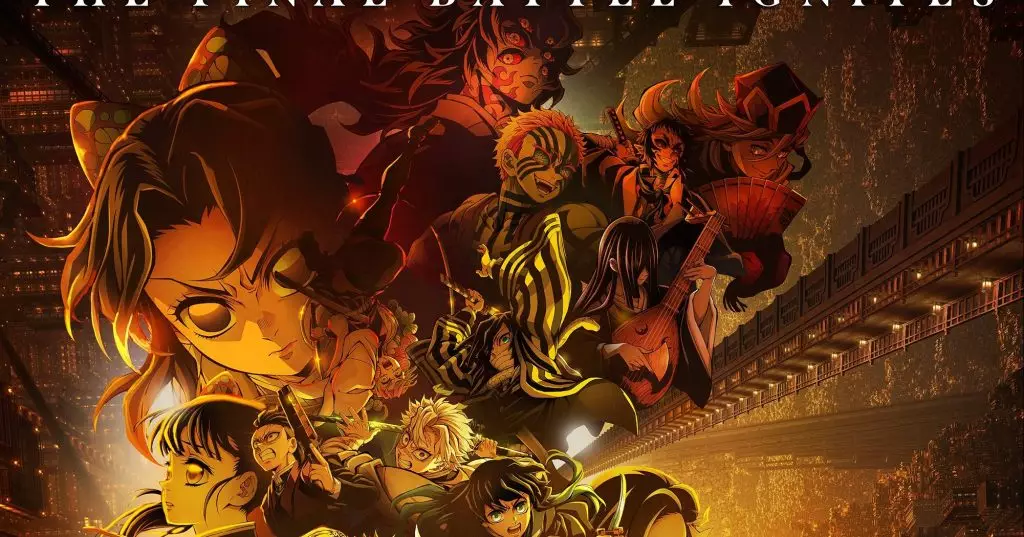In an era where Hollywood eagerly claims to dominate global entertainment, the staggering success of the latest Demon Slayer film in Japan exposes a troubling misjudgment of shifting cultural tides. The film’s unprecedented box office figures — surpassing both local and international expectations — reveal a mounting disconnect between traditional Western-centric media and the ever-diversifying tastes of a global audience. While Hollywood profits may seem colossal from a surface perspective, they pale in comparison to the fervor and loyalty elicited by Japanese anime in its home market. Demon Slayer’s triumph isn’t merely about record-breaking numbers; it signals a profound shift in cultural influence that Western industries have long underestimated or dismissed. This phenomenon forces Hollywood to reconsider whether they should still view Japanese anime as niche or merely supplementary, or recognize it as a legitimate contender on the world stage.
A Wake-Up Call for the Global Entertainment Industry
The sheer scale of Demon Slayer’s domestic success should serve as an urgent wake-up call for anyone who still clings to the notion that Hollywood movies are the only metrics of international box office health. The film’s gross of over $37 million in a single weekend — combined with a four-day tally surpassing $49 million — reflects not just a fleeting trend but a cultural phenomenon rooted in authenticity and deep storytelling. These numbers are indicative of a loyal and emotionally invested fan base that prefers narratives deeply intertwined with their cultural identity. Western studios, often accused of formulaic storytelling and prioritization of spectacle over substance, cannot afford to ignore this vibrant, distinct creative universe that offers both entertainment and cultural resonance.
Hollywood’s failure to adapt swiftly and genuinely engage with these changing consumer preferences exposes systemic vulnerabilities. Demon Slayer’s international distributor, Crunchyroll, plans to release the film globally, yet the magnitude of the Japanese success underscores the risk of Western-centric models relying excessively on blockbuster franchises that seem increasingly disconnected from genuine cultural appeal. Hollywood’s focus on franchise dominance and global release strategies might be their strength, but it also reveals an overreliance on superficial spectacle, often overlooking authentic storytelling that resonates more deeply with regional audiences.
The Cultural Shift as a Sign of a Broader Liberal Future
This phenomenon also points to a broader cultural shift that aligns with the principles of center-left liberalism — valuing cultural diversity, amplifying underrepresented voices, and recognizing the importance of authentic narratives. Demon Slayer’s success underscores how communities seek stories that reflect their own values, histories, and experiences. It exemplifies a move away from homogenized entertainment and toward a more pluralistic landscape where cultural-specific storytelling can achieve global prominence.
Progressive cultural narratives have always emphasized authenticity and emotional depth over spectacle alone. Japan’s anime industry, with its unique blend of tradition, innovation, and heartfelt storytelling, exemplifies this approach. As Western industries scramble to adapt, they should embrace this rising wave rather than resist it. The acceptance and celebration of diverse storytelling traditions can only serve to enrich the global entertainment ecosystem, fostering more inclusive, representative narratives.
In essence, the rise of Demon Slayer signifies more than just a box office victory — it symbolizes a paradigm shift. A shift toward valuing authenticity, cultural specificity, and emotional resonance. For Western entertainment industries to remain relevant, they will need to confront their own cultural biases and recognize that the future does not belong exclusively to Hollywood’s blockbuster machinery. Instead, it belongs to a more nuanced, diverse, and interconnected global storytelling landscape — one that anime has long been pioneering.

